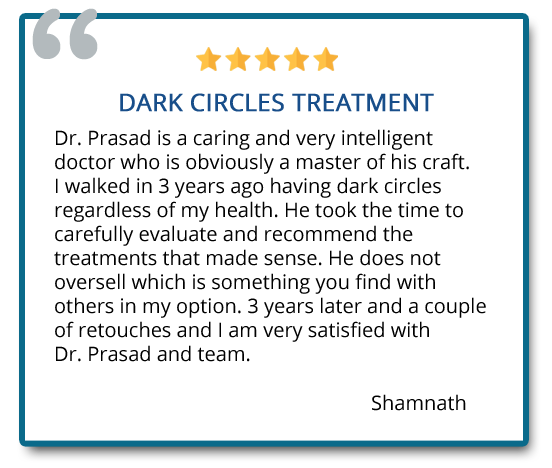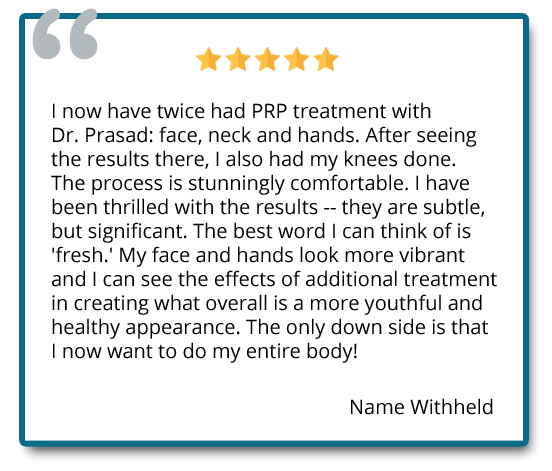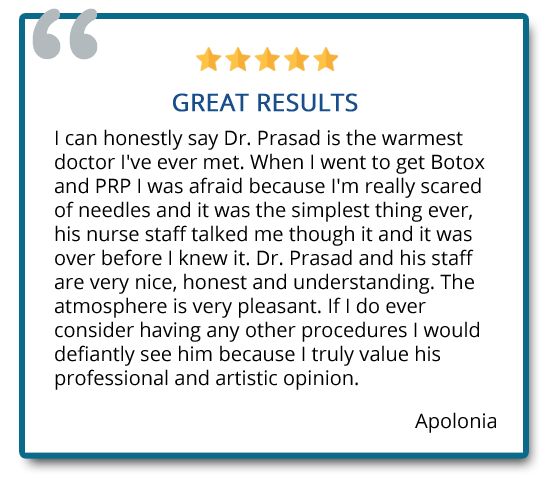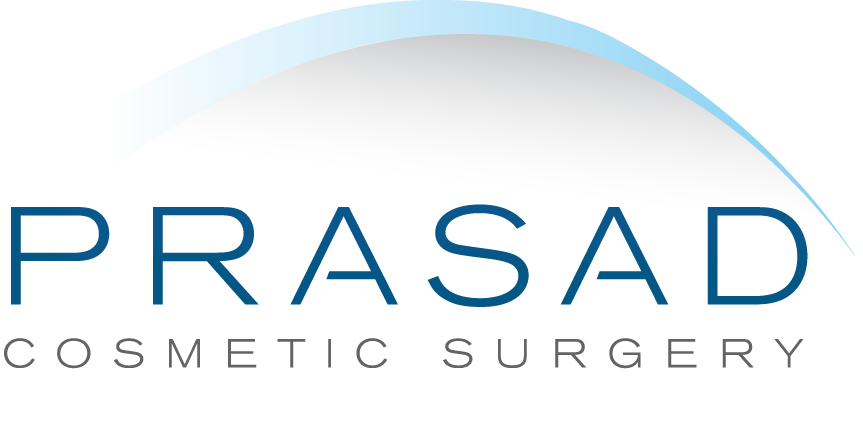Schedule Your Consultation with Dr. Prasad Here
- Home
- About Dr. Prasad
- Face & Eyes
Eyelifts
- Eyelid Surgery
- Eye lift Before and After Photos
- Asian Eyelid Surgery
- Upper Eyelid Surgery
- Upper Eyelid Hollow / Lower Brow Hollowing
- Under Eye Bag Surgery
- Eyelid Ptosis Surgery
- Transconjunctival Blepharoplasty
- Under Eye Fillers
- Eyelid Surgery Revision Specialist
- Thyroid Eye Disease
- Tear Trough Implants
- Eye Lift Questions and Answers
- Body
- Injectables
- Laser
- Hair Restoration
- Photos
- Hair Restoration Before and After Photos
- Eye lift Before and After Photos
- Upper Blepharoplasty Before and After
- Ptosis Surgery Before And After
- Facelift Before and After Photos
- Lip Enhancement Before and After Photos
- Under Eye Filler Before and After
- Blepharoplasty Before and After
- Lower Blepharoplasty Before and After Photos
- Eyelid Surgery Before and After
- Double Eyelid Surgery Before and After
- Contact Us
- Home
- About Dr. Prasad
- Face & Eyes
Eyelifts
- Eyelid Surgery
- Eye lift Before and After Photos
- Asian Eyelid Surgery
- Upper Eyelid Surgery
- Upper Eyelid Hollow / Lower Brow Hollowing
- Under Eye Bag Surgery
- Eyelid Ptosis Surgery
- Transconjunctival Blepharoplasty
- Under Eye Fillers
- Eyelid Surgery Revision Specialist
- Thyroid Eye Disease
- Tear Trough Implants
- Eye Lift Questions and Answers
- Body
- Injectables
- Laser
- Hair Restoration
- Photos
- Hair Restoration Before and After Photos
- Eye lift Before and After Photos
- Upper Blepharoplasty Before and After
- Ptosis Surgery Before And After
- Facelift Before and After Photos
- Lip Enhancement Before and After Photos
- Under Eye Filler Before and After
- Blepharoplasty Before and After
- Lower Blepharoplasty Before and After Photos
- Eyelid Surgery Before and After
- Double Eyelid Surgery Before and After
- Contact Us
Platelet-Rich Plasma (PRP) – Natural Skin Rejuvenation
Platelet-rich plasma, commonly called PRP is used to direct your body’s own wound healing abilities for various situations. Among the first professionals to use PRP were oral surgeons who used PRP to improve the healing process of dental implant surgery. Orthopedic surgeons use PRP for different joint injuries. In Aesthetic Medicine, Dr. Amiya Prasad was an early proponent for the use of PRP for enhanced healing and skin quality improvement. He was able to see many clinical benefits with PRP, although at the time, many dermatologists and plastic surgeons were dismissive of the potential benefits of PRP. So many years later, PRP is now being used by doctors in the cosmetic field for skin rejuvenation, wound healing, as well as for hair loss treatment.
Platelet-rich plasma comes from your own blood. The blood contains cells called platelets, which are needed to form clots when you have a cut. These platelets can be concentrated by drawing blood (like a routine blood test) and then spinning the blood in a centrifuge. This results in a clear yellow serum with concentrated platelets, or platelet-rich plasma.
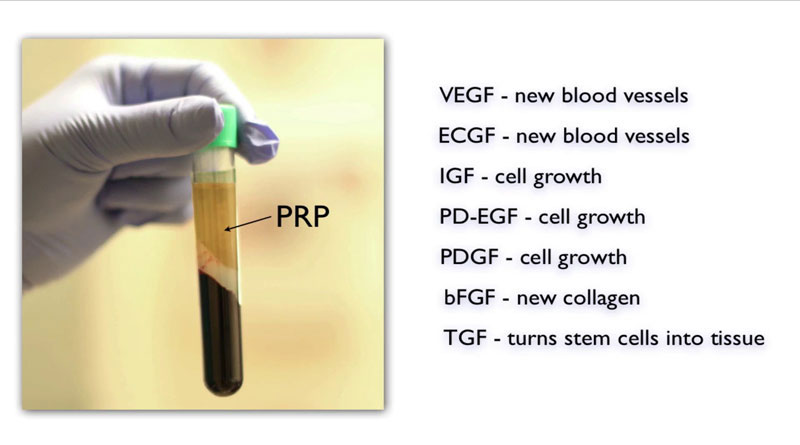
What is Platelet-Rich Plasma Used for?
PRP can be injected into different areas to improve skin quality, texture, increase circulation, and improve blood supply. The effect of PRP on your skin is unique in how the skin texture and “glow” that results after PRP treatment is not usually seen in the same way with other skin treatments.
PRP for different treatment issues, and treatment areas include:
- Under eye dark circles
- Fine lines and wrinkles associated with aging and excess sun exposure
- Forehead lines
- Glabellar lines (“11” lines between the brow)
- Periorbital lines (crow’s feet)
- Nasolabial folds (parentheses lines)
- Smile lines
- Acne scars
- Vertical lip lines (lipstick lines)
- Marionette lines (the ones that extend from the corners of the mouth to the chin)
Differences of PRP from the Vampire Facelift
PRP alone is not the same as the “Vampire Facelift”. While the Vampire Facelift procedure does use PRP, and derives its name from using a patient’s blood, the Vampire Facelift is a specific procedure with a license to its brand. In addition to PRP, the Vampire Facelift involves the application of a single syringe of a hyaluronic acid filler in a specific combination approach. Neither the Vampire Facelift or injections of PRP alone can replace the results of a surgical facelift. PRP is used for skin rejuvenation, while the hyaluronic acid filler used in the Vampire Facelift is used to enhance volume to lift the skin away from the underlying bone structure. There is no lifting of sagging skin and soft tissue as in a surgical facelift.
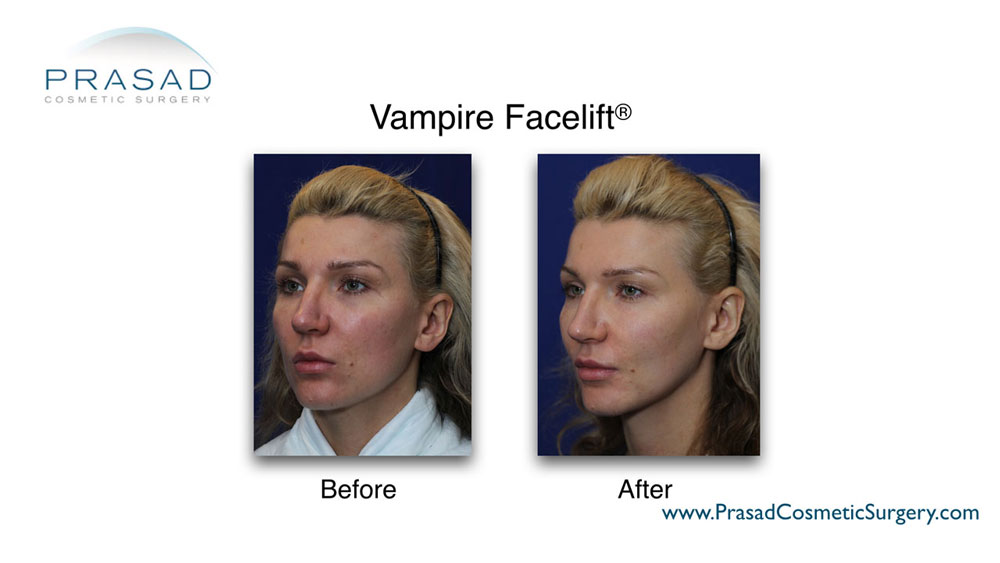
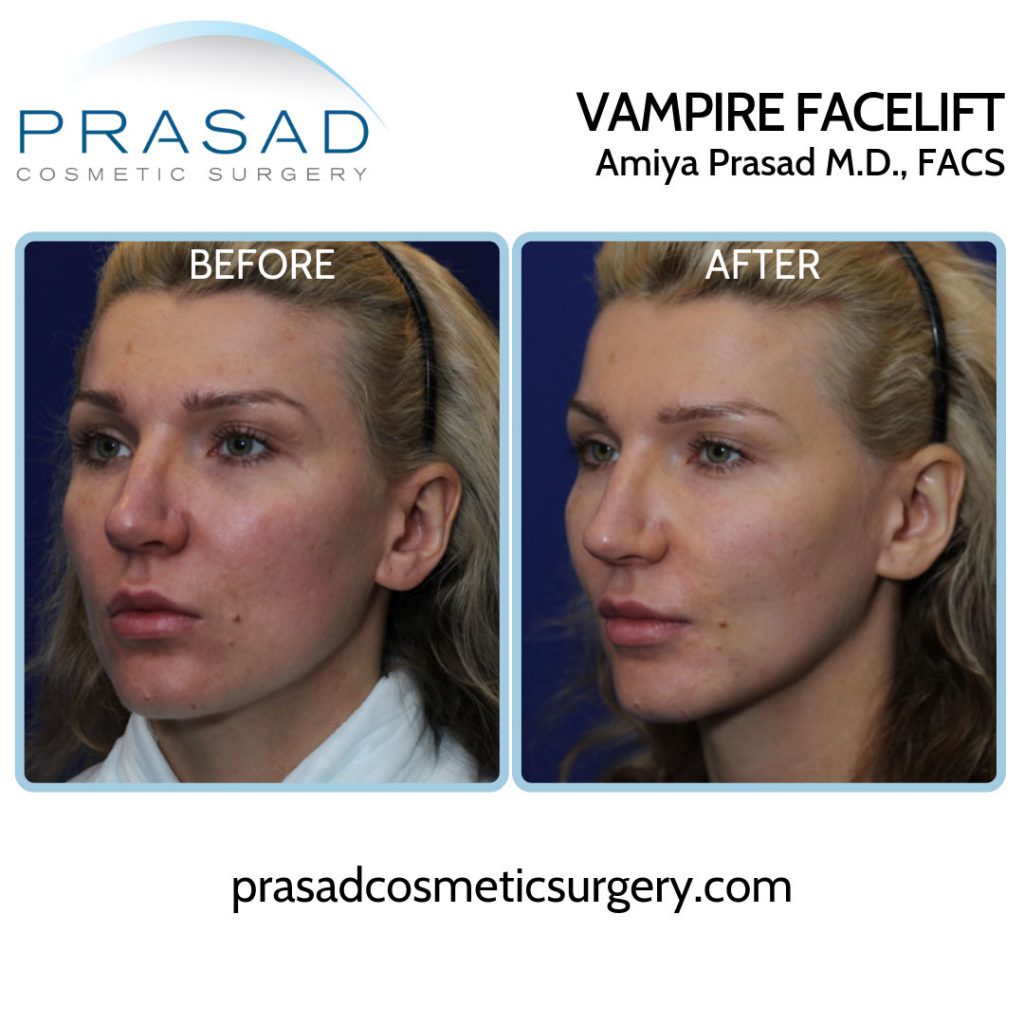
Differences of PRP from Cosmetic Fillers
Many people believe that PRP is a “natural” cosmetic filler that could be a substitute for commercially manufactured fillers. This is not the case. Cosmetic fillers, which are most commonly hyaluronic acid fillers, have a viscosity and longevity that PRP does not have. While PRP can enhance the volume of the fatty layer below the skin, PRP cannot be used to add a significant amount of volume to treat hollow areas or age-related facial bone volume loss. We routinely use hyaluronic acid fillers for volume correction and use PRP for skin quality improvement during the same visit.
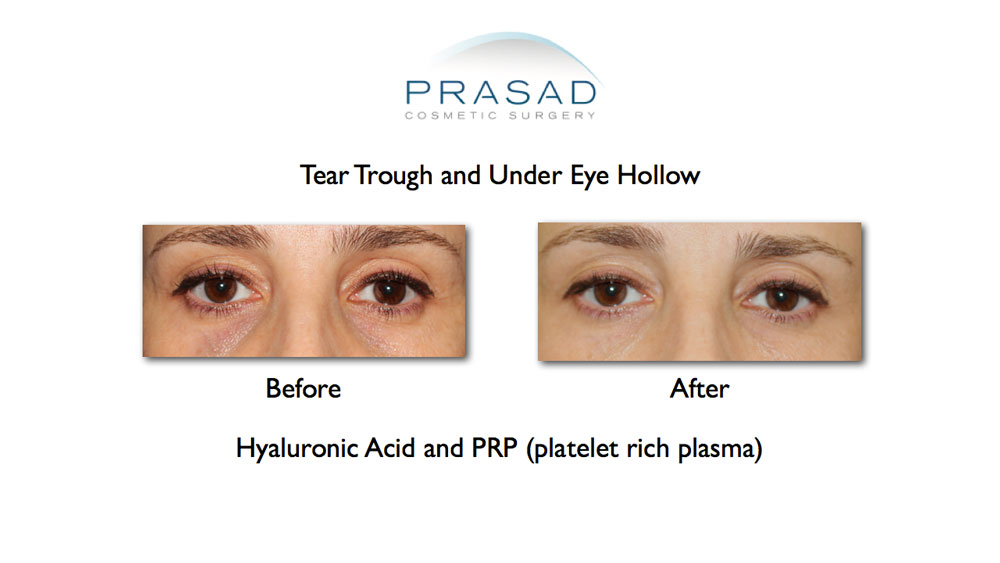
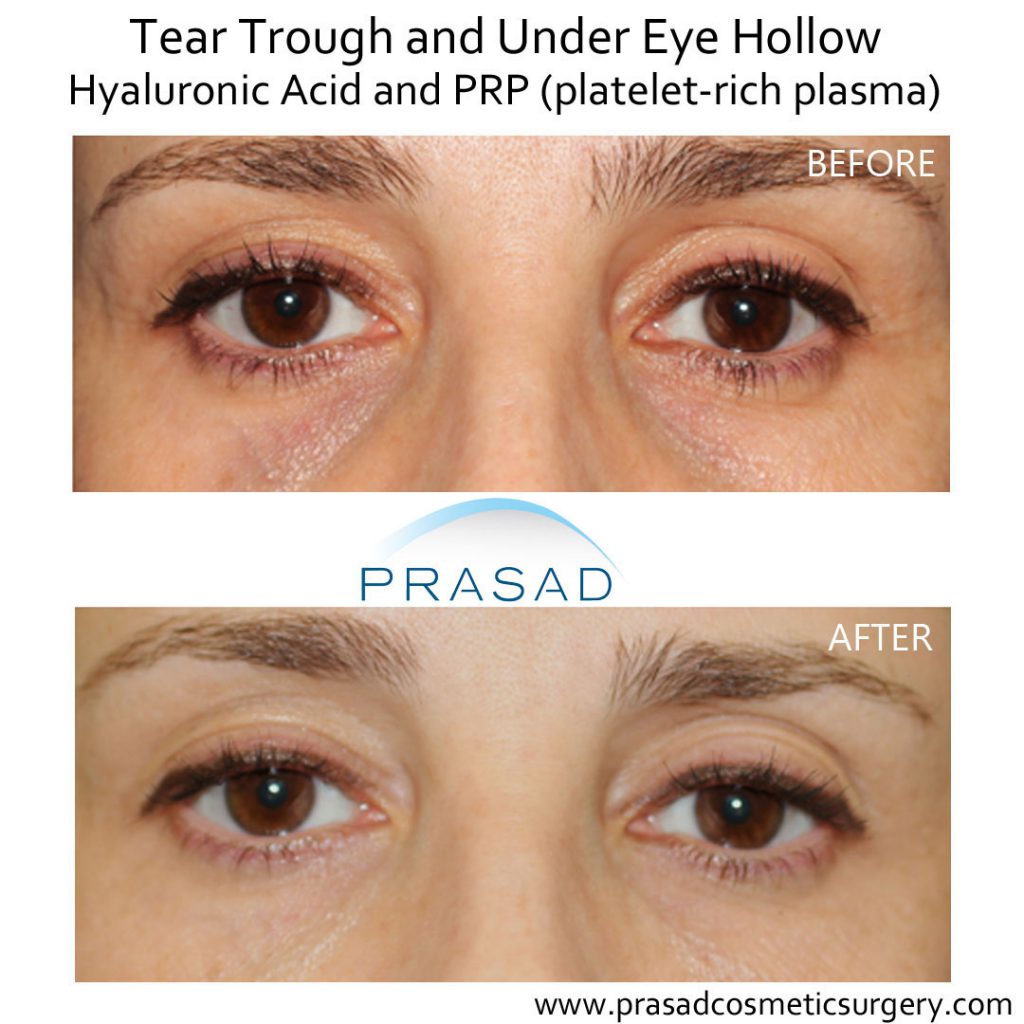
What to Expect After PRP Treatment
PRP treatments are performed in the office with little to no downtime or the need for specialized aftercare. Generally, PRP treatments can be done conveniently such that many people have their treatment over their lunch hour. Minimal swelling or bruising are typical immediately after treatment.
Generally, improvements can be seen over several weeks in your skin’s appearance in terms of texture, and a glow or skin luster after having PRP treatment. The skin can feel healthier and feel like it has more “padding”. This may be due to the way PRP improves the quality and volume of the fat layer under the skin, characteristic of younger skin.
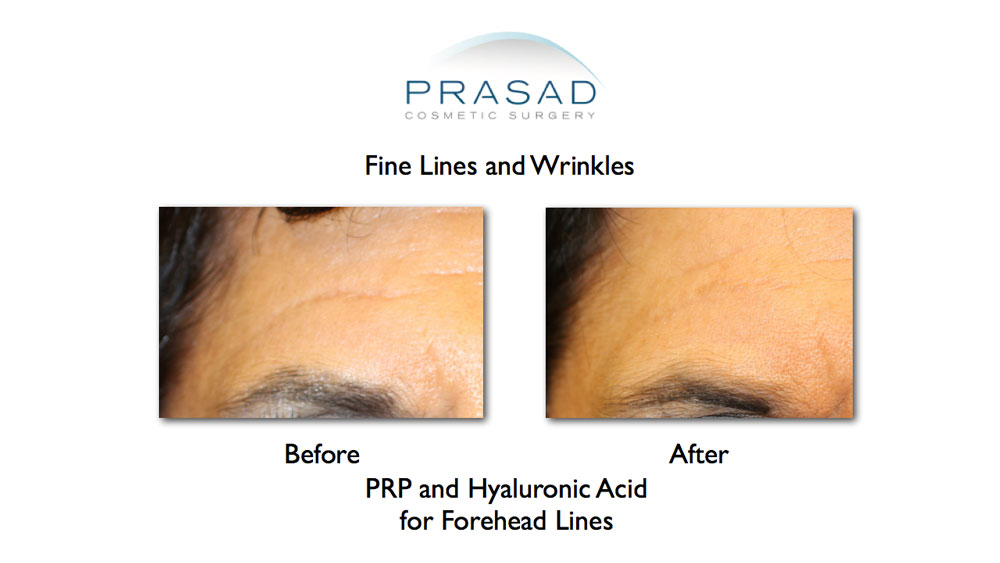
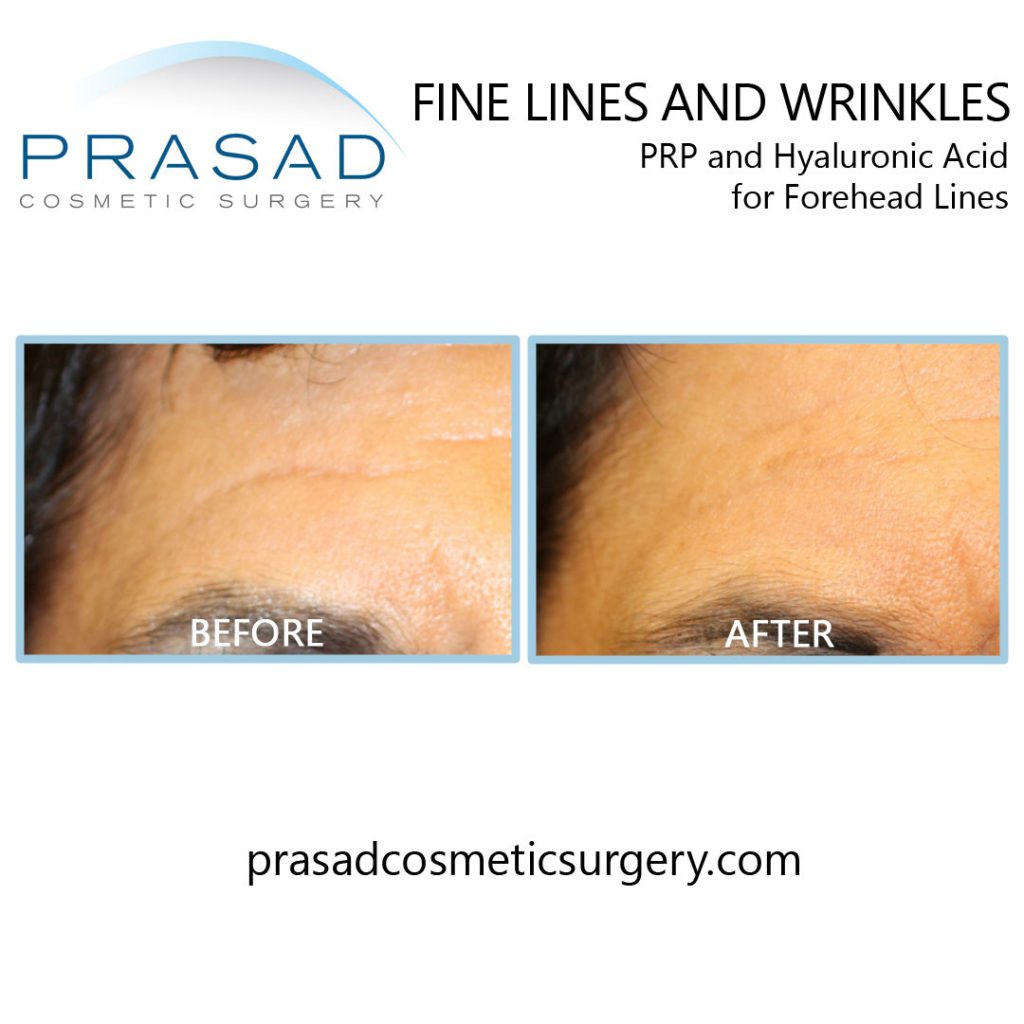
PRP treatment can be performed such that each treatment can add to the benefits of the previous treatment. Dr. Prasad often describes this process to be comparable to building strength with exercise. There is usually a point where the appearance is stable and further treatment would be “maintenance” treatments every 6 to 12 months. This is a strategy to help manage your skin’s appearance as the skin is subject to the effects of excess sun exposure, environmental factors, and natural aging.
Types of PRP Treatment
PRP treatment can be performed in different ways based on what types of issues are being addressed. Dr. Prasad has extensive experience with PRP and other procedures to help people improve their skin. Dr. Prasad will create a customized treatment plan specific to your needs.
Microneedling with PRP

Microneedling uses fine needles at a specified depth to create a controlled injury meant to induce a collagen based healing response. Injuries to the skin Since microneedling creates openings in the skin, topically applied PRP can be absorbed into these openings. This means that these two collagen induction processes are working together to improve your skin quality.
Skin Boosting Using PRP
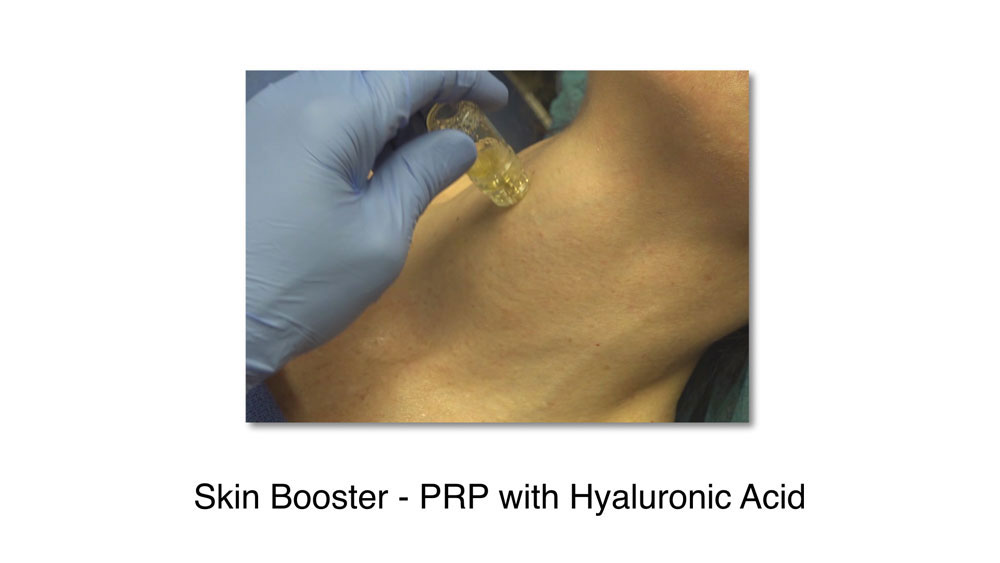
Skin Boosting involves the use of a special device to deliver PRP directly to the dermis (the supporting structure of the skin). The openings are made without any bleeding and through microscopic tunnels or “channels”, we place PRP and hyaluronic acid. Hyaluronic acid provides a scaffolding, which the cells called fibroblasts can deposit strands of collagen. There is no bleeding and no swelling after Skin Boosting. The benefits from Skin Boosting continue for weeks to months as with other PRP treatments.
PRP with Laser or Radiofrequency to Treat Wrinkles
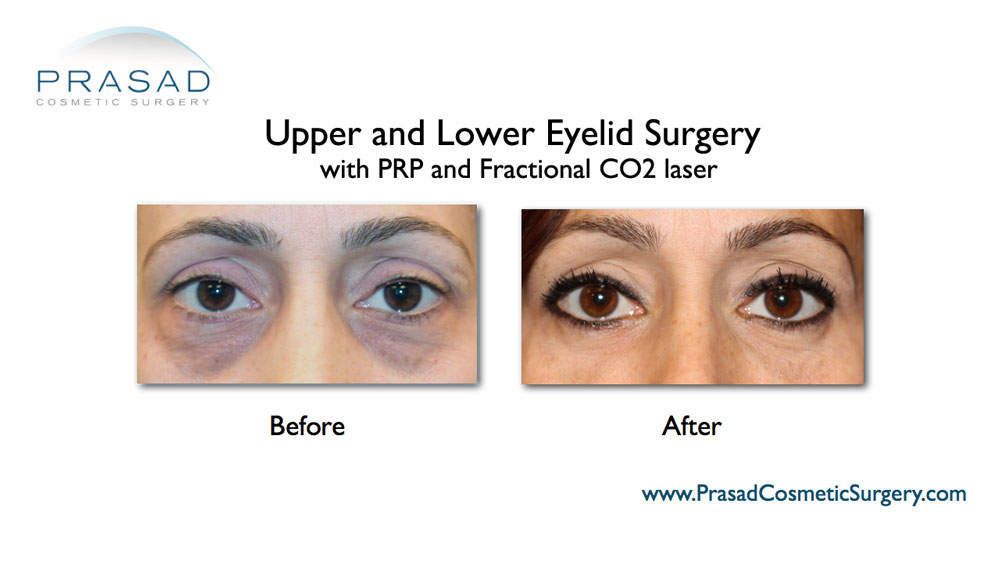
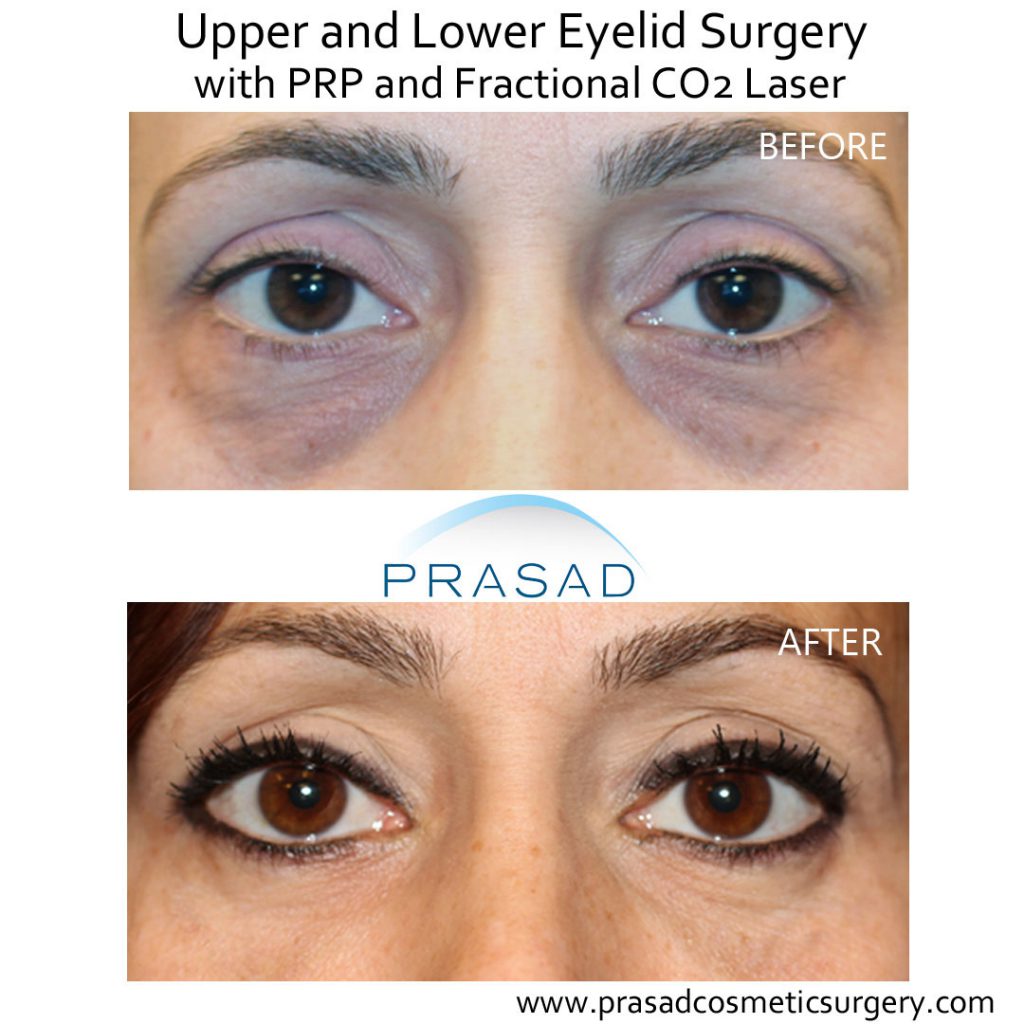
Lasers and radiofrequency treatments use heat to stimulate collagen to tighten the skin and improve the appearance of wrinkles. Radiofrequency treatments are often used for darker skin types, which are at risk for hyperpigmentation and other complications from laser devices.
Aggressive heating can result in burns, skin thinning, as well as essential skin fat loss (makes skin look older).
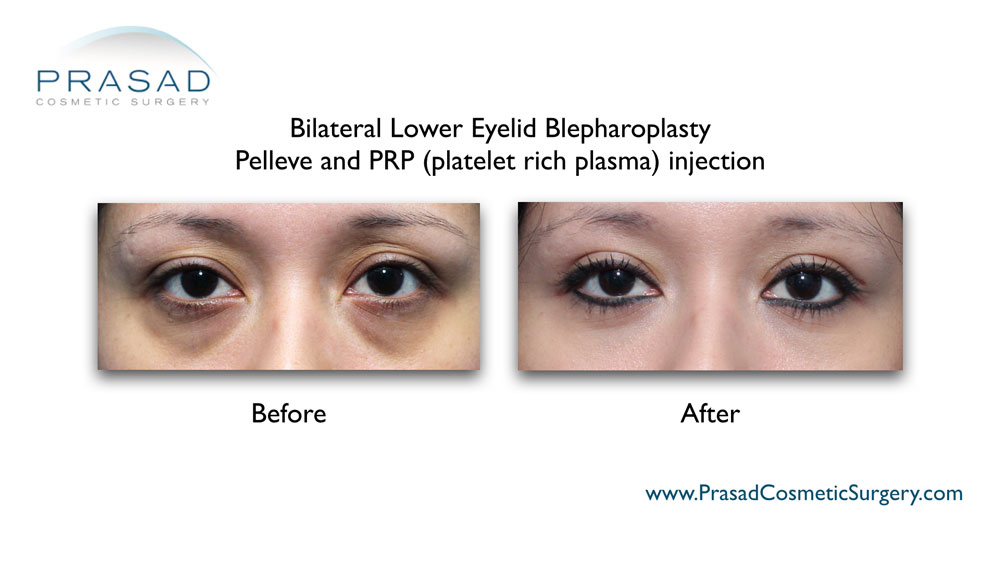
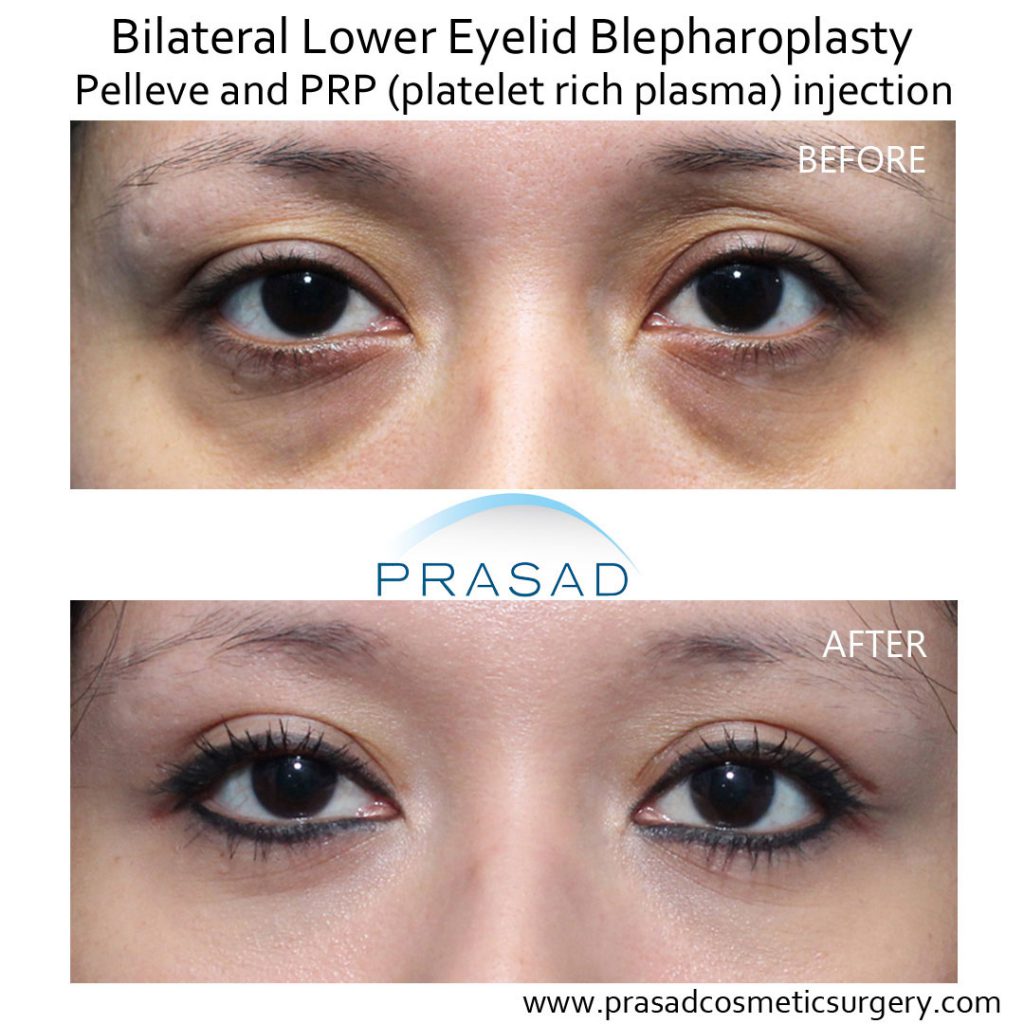
Resurfacing procedures such as fractional CO2 and fractional erbium laser are performed every day in our office. Dr. Prasad uses PRP to enhance the healing process and the benefits of these laser procedures.
Dr. Prasad has designed different laser and radiofrequency protocols to reduce the risk of overheating the skin , while still getting the collagen stimulatory benefits. Dr. Prasad routinely combines laser/radiofrequency treatments with PRP treatments. For example, Dr. Prasad uses a non-ablative laser for collagen remodeling and combines it with skin boosting to further encourage collagen production.
Many people come to our office after having multiple laser treatments from multiple practitioners. Their skin is thin, wrinkled and crepey. Dr. Prasad uses PRP treatments to “rehabilitate” their damaged skin.
PRP for Treating Dark Under Eye Circles, and Discoloration
Discoloration or dark circles under the eyes can be due to ethnic pigmentation, pooled blood, iron deposits, or thin eyelid skin showing the underlying anatomy. PRP as a standalone treatment can help with dark circles by improving blood supply and collagen to the skin under the eyes. As PRP improves skin quality and thickness, the underlying anatomy visible through thin eyelid skin (0.5mm in thickness, the thinnest in the body) can become less visible and improve the dark appearance.
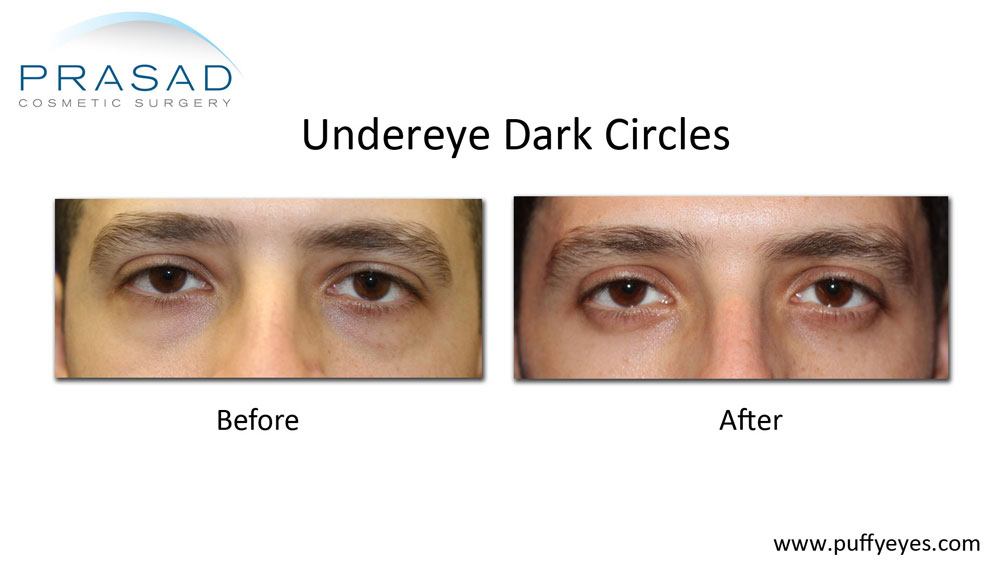
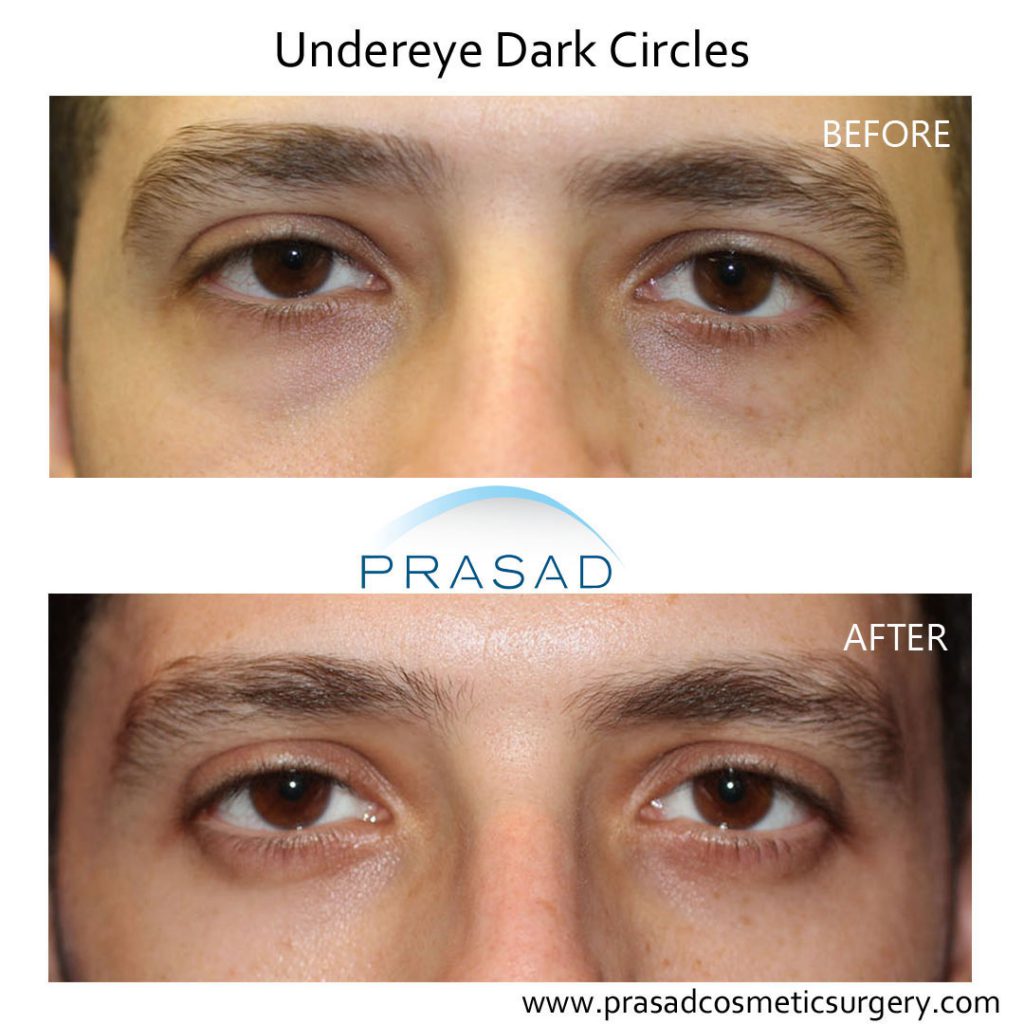
PRP can also be used in conjunction with a laser treatment for dark under eye circles due to pigmentation or discoloration. A laser can be used to remove the darkened or damaged outer layer of skin (ablation) so a new, lighter and fresher layer of skin comes in.
PRP can be used to improve overall skin quality and texture of aging and sun damaged skin under the eyes.
PRP for Hair Loss
PRP alone has been documented in the medical literature to stimulate hair growth in men and women with genetic pattern hair loss. PRP scalp injections for hair loss is offered by many medical practices. As one of the first doctors to use PRP as well as regenerative technology such as acellular matrix (ACell), Dr. Prasad knows that the benefits of PRP alone for hair loss is limited. For example, typical PRP treatment for hair loss requires multiple injection sessions since PRP alone in Dr. Prasad’s experience, only stimulates short-term hair growth which stops working when treatments are stopped. PRP alone for hair loss requires frequent and constant treatment, with no clear end to treatment sessions. Medical practices offering PRP alone as a hair loss treatment usually perform treatment every 1-3 months without a clear timeline and expected longevity.
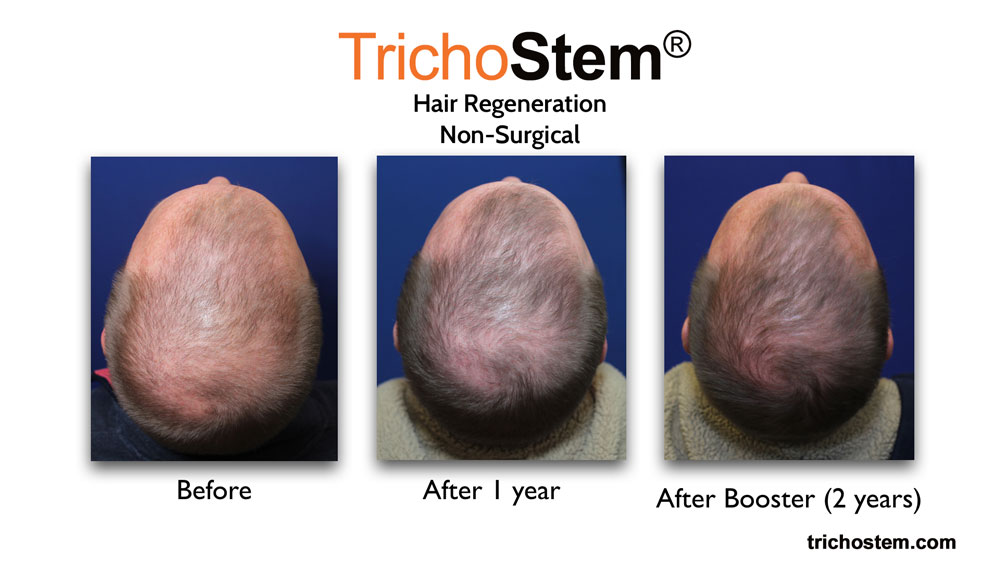
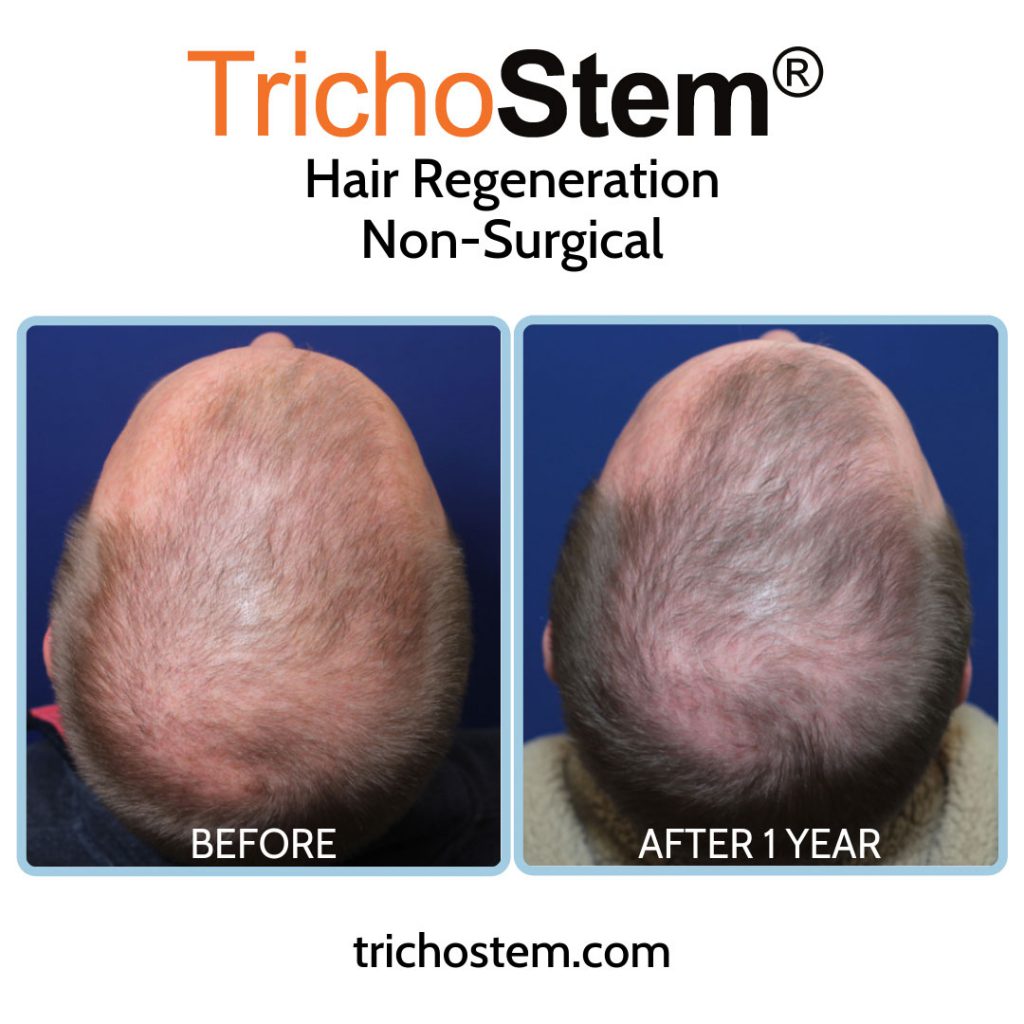
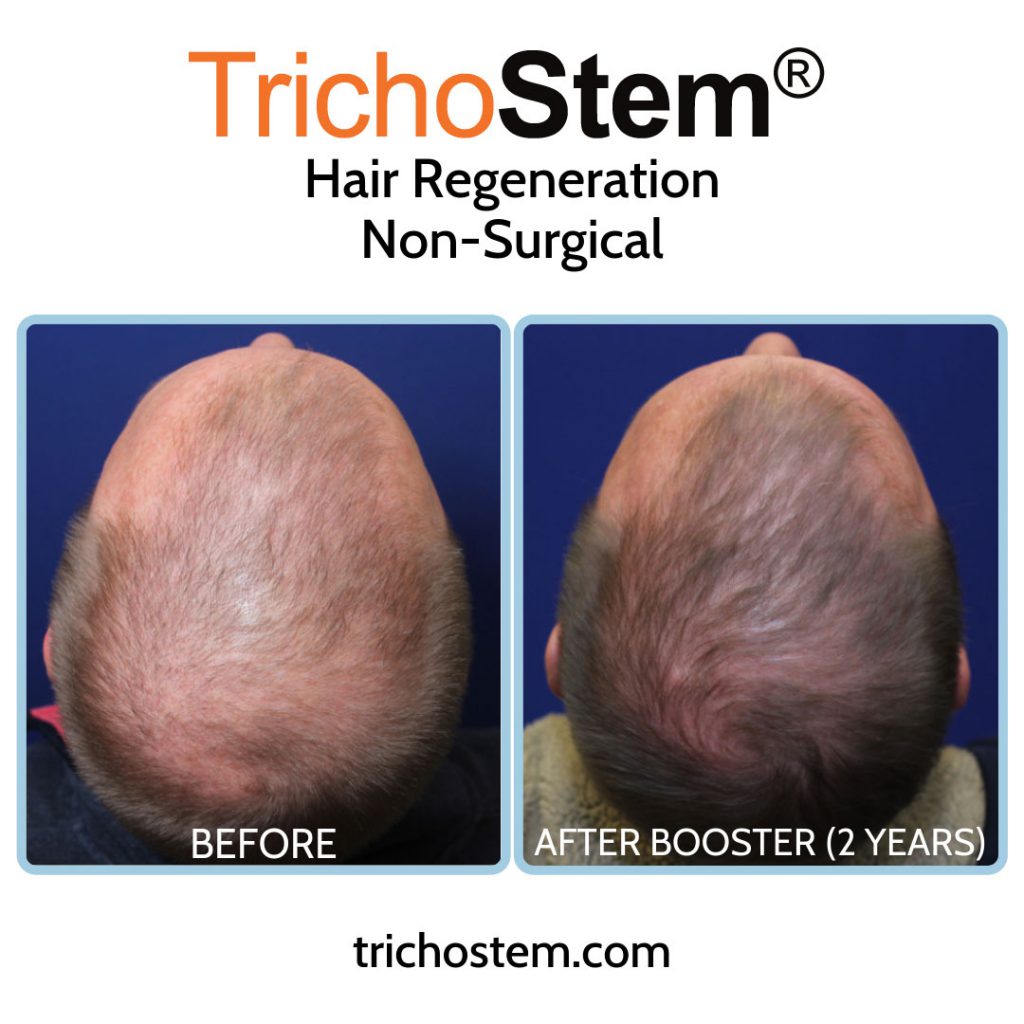
Dr. Prasad created TrichoStem Hair Regeneration for non surgical hair loss treatment in 2011. Although PRP is used as part of the treatment, PRP is not the key component in the process. PRP appears to facilitate the effect of the main component of the treatment, which is extracellular matrix by ACell. Extracellular matrix is an advanced wound healing material with remarkable regenerative properties. Dr. Prasad’s TrichoStem Hair Regeneration System involves different customized algorithms based on each patient’s specific clinical classification.
Typically, TrichoStem Hair Regeneration treatment only requires 1-2 treatment sessions, with the second treatment or booster done 15-24 months after the first. The benefits of treatment generally last for 3-5 years. PRP alone requires multiple sessions of scalp injections (every 1-3 months), with less consistent and limited results.
Platelet-Rich Fibrin Matrix (PRFM) – PRP Made Thicker
PRP can be made into a thicker, gel-like consistency called platelet-rich fibrin matrix, or PRFM, and sometimes called PRF for platelet-rich fibrin. PRFM is prepared the same way as PRP with the patient’s blood draw, which is also spun the same way to concentrate the platelets into PRP. The difference here is that calcium chloride, or Selphyl technology is used to make the serum thicker, like a gel.
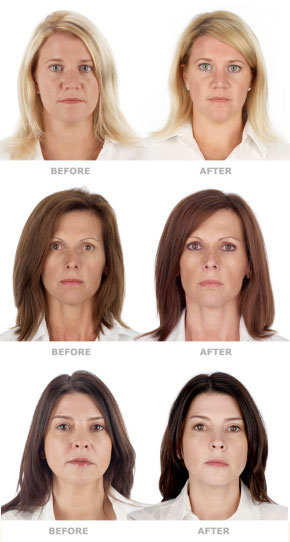
PRFM Areas of Treatment
The basis for PRFM is that the more viscous consistency can make it behave like a time release drug, rather than regular PRP that dissipates in the treatment area soon after it’s injected. Some claim that thicker PRFM can be used as an alternative to a cosmetic filler, but PRFM does not have the same viscosity as a cosmetic filler, nor does it provide a significant or lasting volume like a filler. The dissipation of regular PRP for skin rejuvenation does not reduce its effectiveness for improving skin quality and texture. PRP also works very well when combined with other materials like hyaluronic acid fillers, or with extracellular matrix such as in TrichoStem Hair Regeneration treatment.
Is PRP Treatment Right for You?
Platelet-rich plasma is a safe, effective, and versatile treatment for skin rejuvenation, with unique regenerative properties not found in other treatments. PRP can’t do everything on its own, so a combination with other modes of treatment, or other materials are often the way to get the best results for you.
Schedule a consultation at one of our 3 locations to see how PRP can help you look your best
We are located in Manhattan, New York City, which can call at (212) 265-8877; or Garden City, Long Island, which you call at (516) 742-4636; or Vienna, Virginia, which can be reached at (703) 356-1336.
You can also fill out the contact form below, and we’ll reach out to you as soon as possible.
Patient Reviews on PRP Injections
